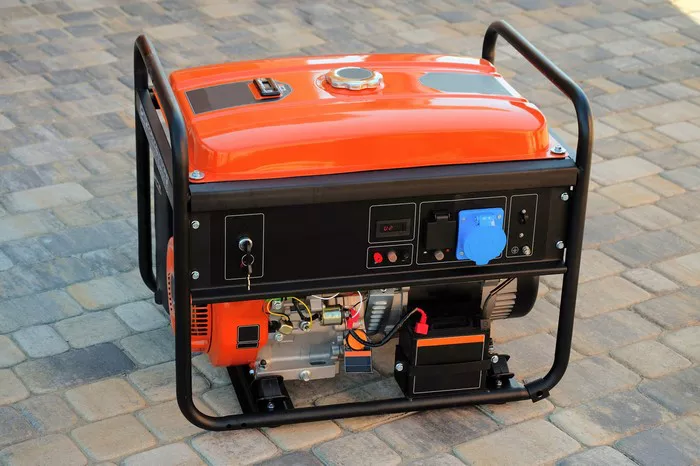Inverter generators have become increasingly popular in various applications due to their efficiency, portability, and ability to provide clean and stable power. Unlike traditional generators, inverter generators use advanced electronics to convert AC power to DC and then back to AC, ensuring a consistent voltage and frequency output. This makes them highly suitable for powering sensitive electronic devices and offering reliable power in diverse situations.
This article explores the different uses of inverter generators, their benefits, and the industries and settings where they are most commonly employed.
How Do Inverter Generators Work?
Before discussing their uses, it is essential to understand how inverter generators function. Unlike conventional generators that produce AC electricity directly, inverter generators follow a three-phase process:
Generation of AC Power: The engine rotates an alternator to generate alternating current (AC) power.
Conversion to DC Power: The AC power is converted into direct current (DC) power using a rectifier.
Reconversion to Stable AC Power: The DC power is inverted back to AC power with a pure sine wave output using electronic circuitry.
This technology results in a more stable electrical output, reduced noise, and improved fuel efficiency.
Common Uses of Inverter Generators
1. Camping and Outdoor Activities
One of the most popular applications of inverter generators is for recreational use, such as camping, tailgating, and outdoor events. Traditional generators tend to be noisy and bulky, whereas inverter generators are compact, lightweight, and significantly quieter. Their stable power output allows campers and outdoor enthusiasts to safely power small appliances like:
- Mobile phones and laptops
- Portable refrigerators
- Electric stoves and coffee makers
- LED lights and fans
2. Home Backup Power During Outages
Power outages can be disruptive, and inverter generators provide a reliable backup source of electricity during blackouts. Many homeowners use them to power essential household appliances such as:
- Refrigerators and freezers
- Wi-Fi routers and communication devices
- Medical equipment (e.g., CPAP machines)
- Televisions and entertainment systems
- Lighting and basic home necessities
Since inverter generators produce clean power, they are particularly useful for protecting sensitive electronics from voltage fluctuations.
3. Job Sites and Construction Projects
Construction sites often require portable and reliable power sources for tools and equipment. Inverter generators are commonly used to power:
- Cordless tool battery chargers
- Power drills and saws
- Air compressors
- Lighting systems
Their efficiency and ability to adjust engine speed based on power demand make them a fuel-efficient choice for contractors working in remote locations.
4. RVs and Boating
Recreational vehicles (RVs) and boats often require a reliable power source for electrical appliances, especially when off-grid. Inverter generators provide a steady power supply for:
- Air conditioning systems
- Microwaves and kitchen appliances
- Water pumps and heaters
- Charging stations for devices
Since inverter generators operate quietly, they are preferred for use in campgrounds, marinas, and nature parks where noise restrictions apply.
5. Events and Entertainment Industry
Outdoor events such as concerts, fairs, weddings, and film productions require portable power sources to operate sound systems, lighting, and other equipment. Inverter generators are favored in these settings due to their:
- Low noise operation
- Fuel efficiency
- Ability to power sensitive electronic equipment
Event organizers use them to keep operations running smoothly without disturbing attendees with excessive noise and fumes.
6. Emergency and Disaster Relief Efforts
During natural disasters such as hurricanes, earthquakes, and floods, access to electricity may be cut off for extended periods. Inverter generators play a crucial role in disaster relief efforts by providing emergency power to:
- Medical equipment in temporary clinics
- Communication devices for first responders
- Food storage and cooking appliances
- Water filtration and purification systems
Their portability and fuel efficiency make them an essential tool for emergency response teams.
7. Agricultural and Farming Applications
Farms and agricultural operations often require portable power sources for running essential machinery and equipment, particularly in remote areas. Inverter generators help power:
- Irrigation systems and water pumps
- Electric fences for livestock
- Milking machines
- Temperature control systems for greenhouses
These generators ensure that essential farming operations can continue even when there are power shortages or unreliable grid access.
8. Tailgating and Outdoor Gatherings
Sports enthusiasts and partygoers often use inverter generators to power grills, speakers, televisions, and other electronics at tailgating events. Their portability and ease of use make them an excellent choice for keeping the fun going without worrying about power access.
9. Medical and Healthcare Applications
Hospitals and clinics rely on stable electricity to operate critical medical devices. In remote areas or during emergencies, inverter generators help maintain the functionality of:
- Ventilators and oxygen concentrators
- Portable X-ray and ultrasound machines
- Laboratory equipment
Their clean and stable power output ensures that medical instruments function without risk of damage.
Advantages of Inverter Generators
Stable and Clean Power Output: Prevents damage to sensitive electronic devices.
Fuel Efficiency: Adjusts engine speed based on power demand, reducing fuel consumption.
Quiet Operation: Operates at lower noise levels compared to conventional generators.
Portability: Compact and lightweight design makes them easy to transport.
Parallel Capability: Some models allow two generators to be connected for increased power output.
Conclusion
Inverter generators are versatile power solutions suitable for a wide range of applications, from recreational use to industrial and emergency scenarios. Their ability to provide clean, stable power with improved efficiency and reduced noise makes them an essential tool in modern life. Whether for home backup power, outdoor activities, or professional settings, inverter generators offer a reliable and convenient source of electricity whenever and wherever it is needed.

